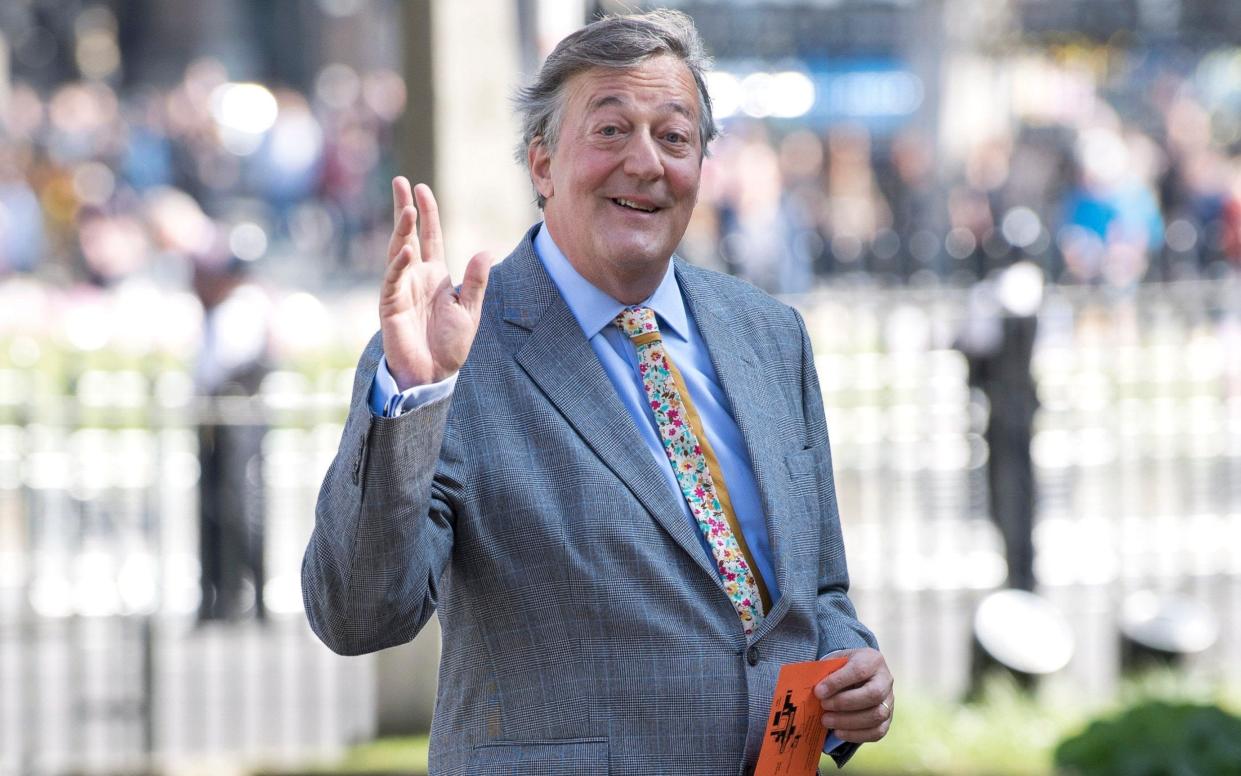U.Me, Stephen Fry’s BBC romance, is less star-crossed lovers than Covid-era misfire

- Oops!Something went wrong.Please try again later.
Stephen Fry was hardly a stay-in-the-background sort prior to the pandemic. Still, his willingness to step forward during the Covid crisis, lending star quality and (financially crucial) curiosity value to digital-theatrical projects, warrants a medal.
Now his avuncular tones and reassuringly purring narration welcome us to a new musical that premiered this evening on the World Service. Fry’s preamble is short, inviting us into “a tale of love, endurance and imagination”, but it has the requisite qualities of enticement and endorsement. And while the piece itself leaves quite a lot to be desired, its ingenuity, at least, warrants his involvement.
Composed by Theo Jamieson – a bright young thing who has been a musical director on a number of West End shows – U.Me: The Musical is a large BBC commission, so not quite the same level of “good cause” as other works with which Fry has been involved. Yet it has entailed a bonanza of work for the industry’s beleaguered freelancers.
Put together over five months during lockdown, it involved 60 musicians and some tricky logistics: principal singing at Dean Street Studios in Soho, music by the BBC Philharmonic in Salford (whose players recorded at home) and, mixing it all, the pop producer Steve Levine in Liverpool.
The overall conceit is similarly bound up with the constraints caused by the Covid crisis, the possibilities of communication – and connection – thanks to technology, and our yearning for actual togetherness. In a Romeo and Juliet-esque scenario, 25-year-old Rose (Anoushka Lucas) is lifted out of the doldrums of a charity-work Zoom meeting by the online overtures of an angsty video-artist called Ryo (Martin Sarreal). Thanks to Covid, any hook-up would be tough, but this pair are on other sides of the planet: he’s a Japanese-American living in Kyoto.
The dominant sentiments are timely: how do we rediscover ourselves, and find others, as we emerge from prolonged solitude? The message – carpe diem, even if it’s Groundhog Day – may be pat, but it resonates. The score has a laudable vim and a magpie vitality, shifting between electronic and symphonic sounds, and even, in the use of strings and brass, spiriting up a retro easy-listening vibe, while the production values are high and the singing strong.
But the characterisation is too thin, the context too scant. At under an hour, U.Me feels like a work-in-progress. Simon Pitts, who had the idea (and wrote the “book”) hasn’t mustered enough reason for us to care about this duo, beyond a basic sense of Covid-era identification. At times breathlessly tongue-twisty in a Sondheim-esque way, Jamieson’s reiterative, expositional lyrics too often court banality, and even clinch bathos. Faced with the hospitalisation of a housemate, for example, Sarreal’s Ryo doesn’t just tell us, he sing-yells at us: “All the orderlies pushing beds are wearing hazmat suits!” – as if we were at the climax of One Day More. Too much!
To be fair, and encouraging, the signs of promise – affirmed by the ear-wormy bursts of pop – are plain. But this project ultimately belongs in the Covid vault, flaws and all. Let’s see, instead, what Jamieson does next.
Repeated on the World Service at 3.06pm on Sunday 23 May and available via BBC Sounds

